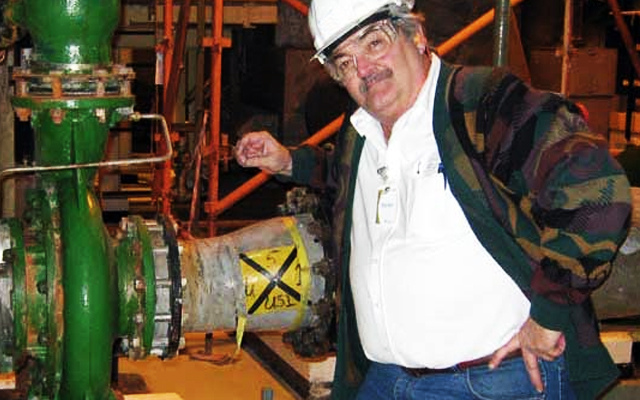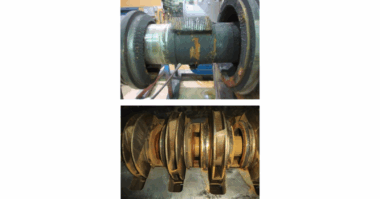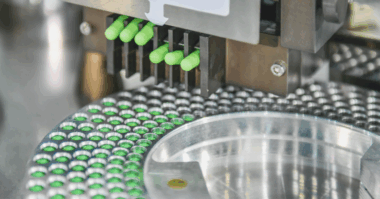Author: Larry Bachus, The Pump Guy®
I am a pump consultant, trainer, and inventor with over 40-years’ experience in maintenance in refineries and chemical process plants. I’ve received some interesting inquiries over the years and thought I’d share this one with the #PumpTalk Community.
“Hello Larry, I’m an Environmental Engineer. I read your biting article “The Mechanical Seal Game” on the Internet, and I thought I would reach out to you. I manage a small boot-strap start-up plant. We pass methane gas through a biotechnology process to make biodegradable plastics. I’ve recently been ‘jolted into the pump world’ as we’re attempting to scale our technology.
We are currently using two identical centrifugal pumps to provide recirculation and mixing for a fermentation vessel. Both pumps worked great for about 3 months. Recently, one pump started leaking through the mechanical seal. We replaced the seal and it failed again after less than 5 days of operation. We tried a different seal type and it too failed within a week of operation.
Our local pump distributor recommended we upgrade to a (much) more expensive pump with a tapered-bore backplate/seal chamber. I would be willing to upgrade the pump if I were confident in the distributor’s recommendation. However, I’m hesitant. I don’t understand why one pump behaves perfectly well, while an identical pump in the same application (same liquid, same temperature, same solids) fails repeatedly with virtually brand-new seals. Can you offer any advice? Best, Brandon”
Now, I could write for a week about how and why mechanical seals fail and still not cover the issues and questions in your mind. It is like asking why someone who doesn’t smoke can contract lung cancer, while another person can smoke three packs of unfiltered cigarettes for 40 years and never get lung cancer. There are many reasons for premature seal failure. I cannot cover all the reasons in a simple email, so I wrote this article instead…
Everything that you own (cell phone, TV, laptop, refrigerator, car) that is reliable and gives good service for many years has proper design, proper application, proper operation and proper maintenance. Likewise, reliable process pumps exhibit proper design, proper application, proper operation, and proper maintenance. Pumps that fail mysteriously and repeatedly are deficient in one or more of these areas.
https://empoweringpumps.com/pump-training-bachus-nashville-may-2020
Seals and Fuses
An electrical fuse is the weak link in your car’s various electrical circuits. A circuit breaker is a similar device for your home. When a fuse burns (fails) in your car’s fuse terminal, the electricity is blocked to part, or maybe all of your car’s devices (the AC, the radio, the fuel pump, or lights). Safety standards demand fuses for automobiles. You might initially blame the fuse for being defective. And replacing a burned fuse can be tedious. But the burned fuse performed an important function. It is better to burn a fuse, rather than cause the battery to explode or start a fire in your car. An electrician wouldn’t blame the burned fuse. Instead, the electrician understands the fuse prevented a potential catastrophe.
In the same sense, the pump seal is the weak link in an industrial hydraulic circuit (I’m talking about your pipe system.) When a mechanical seal fails in a process pump, the problem might be:
- A defective seal. This is a problem of quality control.
- A failure in system design (bad pipe design, wrong filter, wrong valve, heat exchanger, etc.).
- An incorrect application. The pump (or seal) is wrong for the service.
- An operations failure. Bad driving (operation) causes most auto accidents. Is the pump operator trained?
- A failure in maintenance (seal installation, pump rebuild, incorrect shop practices, etc.).
It is better to suffer a seal failure than to destroy a pump, burst a pipe, start a fire or injure a worker.
Let me say it a different way. The mechanical seal is to the hydraulic circuit what the fuse is to an electrical circuit. The day I understood this relationship was the day I stopped blindly changing parts, and started resolving pump problems.
Mysterious, premature seal failure (or a burned fuse) should be a one-time, isolated event that does not occur again. After all, the seal (or fuse) could be defective. However, if the replacement seals (or fuses) fail repeatedly, it means we still haven’t identified the source (inducement) of the problem. This takes us back to design, application, operation and/or maintenance.
To address this portion of your question:
“Our local distributor recommended we upgrade to a (much) more expensive pump with a tapered-bore backplate/seal chamber. I would be willing to upgrade if I were confident…. but I’m hesitant.”
The tapered-bore seal chamber is normally recommended for process pumps that move liquids with solids (sediment, sand, dirt, crystals, etc.). The tapered-bore centrifuges solids away from the seal. The tapered-bore seal chamber doesn’t work so well with solids that float. Floating solids won’t centrifuge. Does your pumped liquid contain solids that might damage a standard mechanical seal? Was this discussed with the pump rep before purchasing the pumps?
If you tell me you want to purchase a new car for yourself, your spouse, three adolescent children with space for camping and fishing gear, why would I recommend that you buy a small car with only two seats? Then, when you complain that your new car is uncomfortable and cramped with your family, I tell you that you need a larger, more expensive 4-door sedan or SUV with a back seat and plenty of legroom for teenagers. Why wasn’t I listening the first time when you said you wanted a car for your family with added space?
Welcome to the world of process pumps! A process pump is offered with different options just as a new car or computer is offered with different options based on the needs and wants of the purchaser and the task to complete.
If you have any questions about process pumps, please post your inquiries in the comments section!
About Larry Bachus
Many people call Larry ‘The Pump Guy’. Larry writes the ‘Pump Guy’ column in Flow Control Magazine, World Pumps Magazine, Mechanical Technology Magazine and to some 40,000 monthly newsletter subscribers. A few of The Pump Guy articles are available on our articles page. Larry writes like he talks. If you like the articles, you will love his books “Know and Understand Centrifugal Pumps” and “Centrifugal Pumps and Everything You Need to Know About Pumps” written in both English and Spanish versions (“Bombas Centrífugas, y Todo lo que Necesita Saber Sobre Ellas”). Larry continues inventing products when not lecturing and consulting. As a member of ASME (American Society of Mechanical Engineers), most of Larry’s products find application in civil and mechanical engineering.




